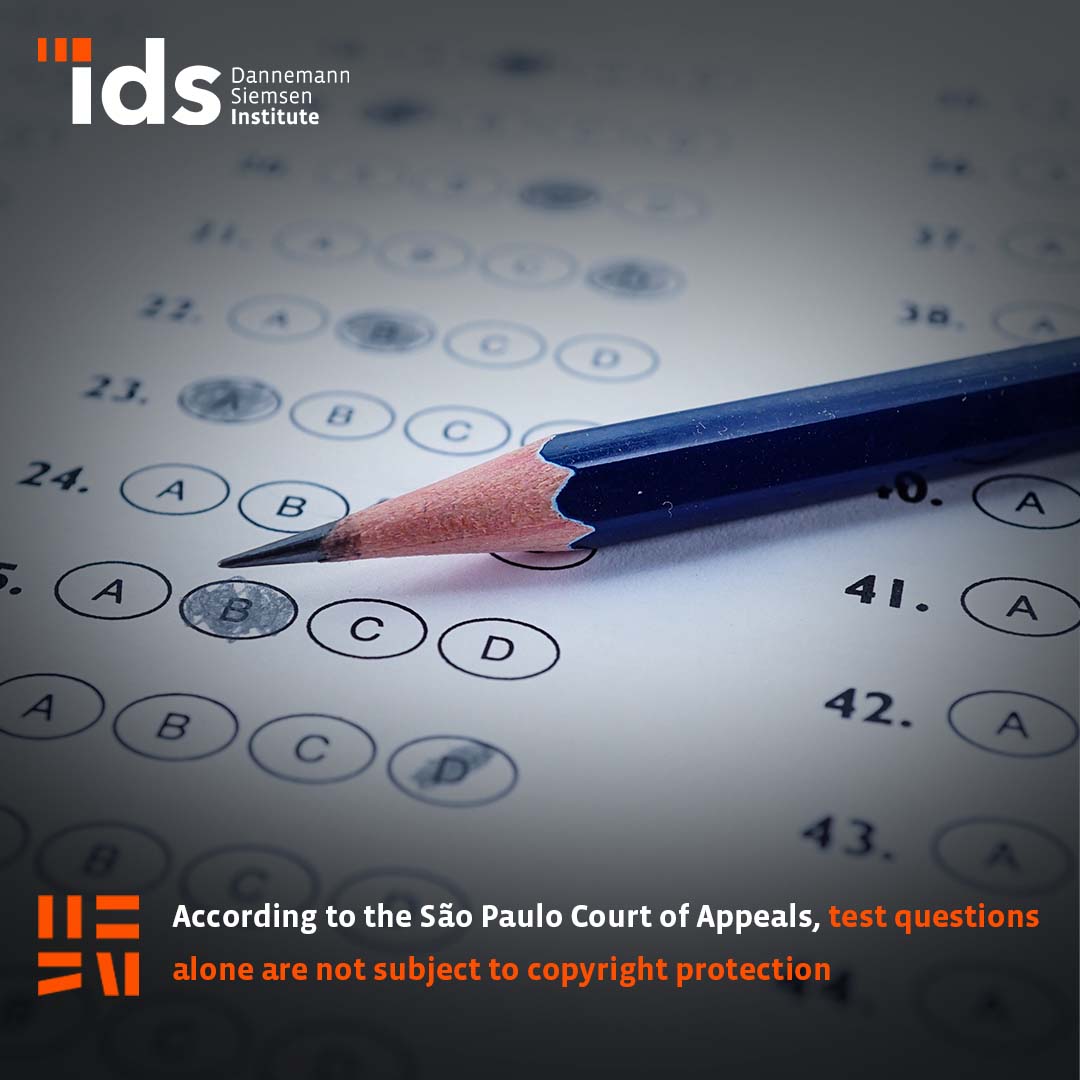22 de abril de 2024
Share
According to the São Paulo Court of Appeals, test questions alone are not subject to copyright protection
In a recent ruling, the 3rd Chamber of Private Law of the São Paulo Court of Justice (TJSP) decided, by a majority, that test questions alone cannot be the object of copyright protection. The case involved three associations that prepared questions and applied tests to obtain certificates, and the crux of the dispute was that one of them was improperly reproducing previously applied questions belonging to the collection of the other two and thus violating their copyright.
In the lawsuit, the plaintiffs claimed that the defendant company was improperly using questions prepared by the plaintiff for certification exam purposes, which would make up a legally protected database, under the terms of article 7, item XIII, of Law 9.610/98 (LDA). The first controversy, therefore, was to understand whether the given questions would, in fact, make up a database.
Here, the rapporteur of the case took the view that the collection of questions produced did not qualify as a database, as it did not have a singular formal organizational criterion that would make it useful for third parties to consult the data contained therein. It also argued that the legal protection extended only to the formal aspect of organizing the contents of the database. In addition, the issues themselves would not be the object of protection, merely because they were in the plaintiffs’ possession (Article 10.2 of the TRIPS Agreement) and did not have original characteristics that made them worthy of legal protection.
Also according to the rapporteur, “the questions prepared by the authors for the certification exam, considered singularly, do not have a specific legal provision for protection as copyright. On the contrary, the matter brought to judgement falls within the express legal hypotheses excluding copyright protection. After all, the elaboration of questions consists of nothing more than a method of study or evaluation of certain scientific knowledge, lacking the indispensable requirement of originality.”
On this point, the ruling was based on article 7, paragraph 3 of the LDA, which states that “the formulation of questions is a capacity that is intrinsic to human thought and reasoning and cannot be subject to copyright appropriation”. It also mentioned the exclusion provided for in Article 8(I) to note that questions, as an evaluative and educational method, could not be the object of copyright protection.
On these grounds, the court dismissed the plaintiffs’ appeal and upheld the judgement of the lower court.
The judgement can be accessed at: https://esaj.tjsp.jus.br/cposg/search.do?conversationId=&paginaConsulta=0&cbPesquisa=NUMPROC&numeroDigitoAnoUnificado=1112376-68.2021&foroNumeroUnificado=0100&dePesquisaNuUnificado=1112376-68.2021.8.26.0100&dePesquisaNuUnificado=UNIFICADO&dePesquisa=&tipoNuProcesso=UNIFICADO
Note: For quick release, this English version is provided by automated translation without human review.
